|
In the relentless flow of life, we often find ourselves caught up in a whirlwind of activities, responsibilities, and commitments. Days turn into weeks, weeks into months, and months into years, all while we carry the weight of our past and the burden of our unexamined present. It's easy to forget that to move forward authentically and achieve our goals, we must pause, reflect, and let go of whatever no longer serves us. This month, as I engage with the SHED coursework alongside my clients, I am embrace the liberating practice of letting go. One of my core beliefs are that we are all always growing and learning, we are all teachers and students. Therefore, in my courses, I work alongside my clients. I am both guide and student. This September, here are the three things I'm releasing from my life with the help of the SHED coursework. 1. My addiction to doing 2. Weight 3. My (unhelpful) inner-narrative about a past situation My addiction to doingLetting go of my addiction to doing is going to allow me to build a more balanced and healthy life. Not only does our society glorify busyness and place a premium on productivity, but I am still healing a poverty wound from my childhood (you can read my story here), so I have found myself addicted to constantly doing in an attempt to stay safe, secure and respected. Mentally, I understand that "doing" is not the best tool to use to create safety and respect in my life, but there are 3 ways to "know" something, and I need to pull my knowing from a level 2 (emotional) to a level 3 (modus operandi). Additionally, because I am so incredibly passionate about my work, I can easily find my neurodivergent brain hyper focusing on it for long hours. While this brings me a ton of joy, I recognize that in order to be the person I want to be, my life (and my focus) has to be more multidimensional and balanced. Letting go of this addiction will require a shift in mindset and a commitment to prioritize my mental and emotional well-being. It involves time and dedication to meditation, reflection, and journaling as I investigate my values and needs in order to discover the "key" to realigning my internal "story". My updated story will allow me to embrace moments of stillness, self-care, and relaxation as just as important as accomplishing tasks. This shift will allow me to increase my self-awareness, improve my mental health, and achieve greater overall happiness. If you struggle with over-doing, I invite you to join me in SHEDing this addiction. When we let go of the addiction to doing, we create space for reflection, creativity, and self-discovery. We allow ourselves to reconnect with our passions, values, and the things that truly matter to us. It's an opportunity to cultivate a more mindful and purposeful life where we savor each moment rather than rushing through them. Ultimately, the journey to release this addiction can lead us to a more authentic and fulfilling existence where we find contentment in simply being ourselves, free from the constant need to prove our worth through ceaseless activity. WeightLetting go of excess weight on our bodies is a journey that extends beyond just shedding physical pounds; it's about reclaiming our health, self-confidence, and overall well-being. Carrying excess weight can take a toll on both our physical and emotional health, but the process of shedding it can be a transformative and empowering experience. For me, as I go into middle age (I'm 44), and I manage health issues (brain tumor) and medication for those health issues (that cause weight gain), I find myself trying to lose weight for the first time in my life. This is a new journey for me, and one that I'm excited about. For me, it's not just about aesthetics but primarily about my health. I like to feel like my body is an asset to me in my choices. To the greatest extent possible, I want to be able to do whatever I want to do and not be limited by my body's capabilities (fitness and health). For me, it is about taking control of my life and making choices that promote longevity and vitality. It's about freeing myself from the physical limitations that extra weight can impose and giving myself the opportunity to live a life filled with energy and vitality. As an NFPT Personal Trainer and Health Coach, I know that the journey to letting go of excess weight involves adopting sustainable lifestyle changes rather than quick fixes. I am focusing on cultivating healthier habits that I can maintain over time. I'm also doing experiments to discover exactly how my body responds to different foods so that I can optimize my diet. The process of shedding excess weight also requires a shift in mindset. While this can include fostering self-compassion and embracing a positive self-image, for me it is primarily about my priorities and allowing diet and exercise to take up more of my time and energy every single day. If you're interested in following my journey on this topic, stay tuned as I work through the SHED curriculum throughout the rest of September! My Story (about people not liking me)The annual SHED course begins by assessing where you are "leaking" energy, where you feel constricted, and where you encounter sadness, stress or other heavy vibration feelings in your life. When I did my examination, I realized that there was a past situation in my life where I was holding on to a story that was not serving me. In fact, it was causing quite a leak in my energy field. Because I've done this work for over a decade, this is not the first time that I've had to let go of a similar story. For me, it comes up sometimes and, gratefully, I have the tools to know how to manage it in my life and return to my most wild and free self. Often, we construct narratives in our minds that are not necessarily grounded in reality, and these stories can have a detrimental impact on our self-esteem and relationships. The story that people don't like us/respect us/value us is a common one, and can stem from various sources, including past experiences, insecurities, or misinterpretations of social cues. However, it's crucial to remember that our perception isn't always an accurate reflection of how others truly feel about us. People's thoughts and feelings are complex, and their thoughts, beliefs and behaviors (including their opinions about us) ultimately describe them, not us. While it is easy to mentally understand this, living it is much more challenging. If you are looking to change your story regarding how people think about you, you have two options. You can "check out reality" with the person and discover their actual thoughts and feelings - or you can change the story that you are telling yourself about the person and/or situation. I am going to be doing the latter one, changing my story. If you're interested in changing your story about a particular person or situation, download my DIY Coaching Course, The Stories We Tell Ourselves for a step-by-step guide to changing your stories. I'll also be posting another blog next week showing my personal step-by-step process in changing my story on this particular situation. Letting go of what no longer serves us is not a one-time event but an ongoing journey. It's an act of self-compassion and a commitment to living authentically. Authentic living is about aligning our actions, choices, and beliefs with our true selves. It's the key to achieving our goals, finding genuine happiness, and experiencing lasting peace. When we let go of old habits, toxic relationships, and the fear of failure, we create space for the authentic self to flourish. We become more in tune with our desires, values, and passions. This alignment empowers us to set meaningful goals and pursue them with unwavering dedication. Authenticity becomes a guiding principle, leading us towards a life that resonates with our innermost aspirations. Taking time every year to review our lives and let go of what no longer serves us is a profound act of self-love and self-discovery. It is the authentic living path, a journey towards becoming our truest selves. As we shed the weight of old habits, toxic relationships, and fear, we make room for our authentic selves to shine through. With authenticity as our compass, we can navigate the twists and turns of life, achieve our goals, and experience unparalleled joy and peace. So, this month, I invite you to join me in letting go and embracing the authentic life that awaits us.
0 Comments
The idea of willingly embracing incompetence might seem counterintuitive. However, there's a profound truth hidden within this paradox: "The best way to become great at something is to suck at it with enthusiasm." These wise words by Authenticity Empowerment Coach Mindy Aisling encourage us to shatter the fear of failure and boldly venture into uncharted territories, accepting that stumbling is an integral part of the journey towards excellence.
Embracing the Unknown As human beings, we tend to stick to what we know and excel at, avoiding situations where our competence may be in question. We avoid the discomfort of feeling like a beginner because it threatens our sense of self-worth and competence. However, it's precisely this fear that often hinders personal growth and prevents us from discovering new talents and passions. Embracing the unknown is a crucial step in personal development. When you decide to embark on a new journey, whether it's picking up a musical instrument, trying a new sport, or learning a foreign language, you are essentially choosing to leave the safety of your comfort zone. It's important to acknowledge that at the beginning of any such endeavor, you're likely to be far from proficient. You might even "suck" at it, as Mindy Aisling suggests. But this is where the magic happens. The Power of Enthusiastic Sucking To "suck" at something means to perform poorly or unskillfully in the initial stages. It means making mistakes, fumbling, and perhaps even feeling a bit foolish. But here's the key: it's okay to suck at something when you're just starting. In fact, it's more than okay—it's essential. When you embrace the process of learning with enthusiasm, you open yourself up to a world of possibilities. Enthusiastic sucking is not about accepting mediocrity; it's about recognizing that the path to mastery is paved with failures, missteps, and countless setbacks. These are the building blocks of success. The Learning Curve Every skill or talent has a learning curve. It's a graphical representation of your progress, and it often starts with a steep climb from the bottom, where you might feel completely out of your depth. This is where most people give up or shy away from trying something new. But this is also where the growth happens. Think about a child learning to walk. In the beginning, they wobble, stumble, and fall repeatedly. But they don't give up. They keep trying, fueled by their curiosity and determination. Eventually, they become proficient walkers. The same principle applies to adults learning new skills or mastering new endeavors. Overcoming Fear of Failure The fear of failure is a powerful psychological barrier. It can prevent you from taking that first step toward something you've always wanted to try. However, when you acknowledge that failure is not the end but a stepping stone to success, you can start to shift your perspective. Failure teaches valuable lessons. It shows you what doesn't work, allowing you to make adjustments and try again. Each "sucky" attempt brings you one step closer to improvement. The key is to maintain your enthusiasm throughout the process, even when things get tough. As you gain experience and learn from your mistakes, you'll gradually find yourself moving up the learning curve. Building Resilience and Confidence Embracing enthusiastic sucking also builds resilience and self-confidence. When you're willing to endure the initial discomfort of incompetence and keep pushing forward, you develop grit and determination. These qualities not only serve you well in your current endeavor but can also be applied to other areas of your life. As you make progress and see your skills improve, your self-confidence naturally grows. You start to believe in your ability to conquer challenges, and this newfound confidence spills over into various aspects of your life. You become a more adaptable and capable individual. So, be brave enough to suck at something new. Embrace the discomfort of incompetence with enthusiasm, knowing that it's a temporary stage on your journey to mastery. Mindy Aisling's wise words remind us that greatness is born from a willingness to face our limitations head-on and to keep pushing forward, even when we feel like we're far from achieving excellence. Remember, it's not about how you start; it's about how you persist and evolve along the way. In the end, you'll not only become great at what you set out to do but also discover the incredible strength and resilience within yourself. In a world that often romanticizes the idea of eternal love and "happily ever after," the notion of ending a relationship can be met with skepticism and sadness. However, it's essential to recognize that there are circumstances when ending a relationship can actually be a positive and transformative step. In fact, staying in a relationship beyond the point of healthy uncoupling can be detrimental to the mental and emotional health of the partners (and children) in the marriage. The Christianization of our society has sold us a story that shames the naturally occurring ending of some relationships - this is not a story that you have to accept. It's okay for you to feel positive as you move forward to end your marriage or long-term relationship. While, of course, the decision is never taken lightly, here are some reasons why ending a relationship can be a good thing:
The decision to end a marriage or long-term relationship is never easy. It's a step that comes with a multitude of emotions, questions, and uncertainties. Yet, there are times when divorce or ending the relationship can be a good thing – a choice that leads to growth, healing, and the chance for both partners to embark on new journeys. Ending a relationship with love and compassion is a path that, while challenging, can pave the way for a healthier and brighter future. Recognizing the Signs of a Healthy Ending In certain situations, divorce can indeed be a positive step. When a relationship becomes toxic, marked by constant conflicts, emotional or physical abuse, or a lack of support and connection, it can erode the well-being of both partners. In these instances, choosing to end the relationship can be an act of self-care and self-preservation. Additionally, when partners have grown apart and their values, goals, or life paths have diverged significantly, it may be beneficial to part ways amicably. Rather than clinging to a relationship that no longer serves both individuals' best interests, ending it can open doors to new opportunities for personal growth, happiness, and fulfillment. Approaching the End with Love and Compassion The end of a relationship need not be marked by bitterness and resentment. Choosing to end a relationship with love and compassion can lead to a more graceful and healing separation process.
Embracing New Beginnings While the decision to divorce or end a relationship can be difficult, it also opens the door to new beginnings. It offers the opportunity for personal growth, self-discovery, and the pursuit of individual goals and aspirations. Embracing this new chapter can lead to a more fulfilled life, even in the midst of challenges. Have you ever experienced that overwhelming wave of discomfort and regret after opening up and being vulnerable? That gnawing feeling that maybe you revealed too much or shared something that should have remained hidden? Welcome to the realm of the vulnerability hangover, a phenomenon that many of us have encountered but few truly understand. Let's delve into what a vulnerability hangover is and explore strategies to overcome it.
Understanding the Vulnerability Hangover The term "vulnerability hangover" was coined by Brené Brown, a renowned researcher and storyteller who has extensively studied vulnerability, shame, and courage. This phenomenon refers to the intense feeling of emotional discomfort or even regret that follows after we've shared something personal, authentic, or vulnerable with others. It's that sinking sensation that leaves us questioning our decision to be open and exposed. Why Does It Happen? Vulnerability hangovers arise from a collision of emotions. When we share something personal or authentic, we open ourselves to the possibility of judgment, rejection, or misunderstanding. Our brain's natural response to potential threats is to trigger discomfort, anxiety, and even shame. This is a survival mechanism, but in the context of vulnerability, it can manifest as a vulnerability hangover. Curing the Vulnerability Hangover While the vulnerability hangover can be uncomfortable, it's important to recognize that it's a sign of growth and courage. It indicates that you've stepped out of your comfort zone and allowed yourself to be seen authentically. Here are strategies to help you navigate and cure the vulnerability hangover: 1. Self-Compassion: Practice self-compassion and remind yourself that feeling vulnerable is a natural part of being human. Treat yourself with kindness and understanding, just as you would a close friend who's experiencing a similar situation. 2. Reflect: Take some time to reflect on why you chose to be vulnerable in the first place. What was the intention behind sharing your thoughts or experiences? Often, recognizing the positive reasons behind your actions can help alleviate the discomfort. 3. Normalize It: Understand that vulnerability hangovers are common, especially when we step outside our comfort zones. Knowing that others experience this too can reduce the feeling of isolation. 4. Challenge Negative Thoughts: If you find yourself dwelling on negative thoughts or self-criticism, challenge them. Consider whether those thoughts are based on facts or if they're being blown out of proportion by your vulnerability hangover. 5. Seek Support: Talk to someone you trust about how you're feeling. Sharing your vulnerability hangover experience with a friend or confidant can help you process your emotions and gain a different perspective. 6. Embrace Growth: Remind yourself that vulnerability is a catalyst for personal growth and connection. The discomfort you're feeling is a sign that you're pushing boundaries and evolving as an individual. 7. Stay Present: Practice mindfulness techniques to stay present and grounded. Focusing on the here and now can help alleviate the anxiety associated with a vulnerability hangover. 8. Practice Gradual Exposure: If vulnerability hangovers are a recurring issue for you, consider practicing gradual exposure. Start by sharing smaller, less intense vulnerabilities before gradually working your way up to more personal topics. 9. Embrace Imperfection: Recognize that nobody has it all figured out. Embrace your imperfections and understand that vulnerability is a sign of authenticity, not weakness. 10. Celebrate Courage: Acknowledge and celebrate the courage it took to be vulnerable. Focus on the bravery you demonstrated rather than fixating on any perceived shortcomings. The vulnerability hangover may be uncomfortable, but it's a testament to your willingness to be genuine and open with others. Instead of allowing it to hold you back, use it as a stepping stone toward personal growth and deeper connections. By practicing self-compassion, reframing your thoughts, and celebrating your courage, you can navigate vulnerability hangovers and reap the rewards of living an authentic and fulfilling life. Showing up 100% means bringing our true selves to every situation and interaction. However, it's important to acknowledge that authenticity is not a static concept. Our moods, experiences, and circumstances can vary from day to day, making the way we show up 100% uniquely different each day. Showing up 100% can manifest in various ways and it is essential to honor our ever-changing authenticity. ➡️ Honoring Emotional Authenticity: Emotions are an inherent part of the human experience, and they fluctuate constantly. Showing up 100% means acknowledging and accepting our emotions without judgment. Some days, it might mean showing up with enthusiasm, radiating positivity, and spreading joy. Other days, it could involve embracing vulnerability and expressing sadness or frustration. Authenticity lies in allowing ourselves to feel and express our emotions genuinely, regardless of societal expectations. ➡️Adapting to Circumstances: Life is unpredictable, and our circumstances can vary greatly from day to day. Showing up 100% requires adaptability and flexibility. It means recognizing that our energy levels, external pressures, and personal responsibilities fluctuate, influencing the way we engage with the world. Sometimes, showing up 100% means offering support and guidance to others when they need it, while other times, it might involve prioritizing self-care and setting boundaries to protect our well-being. ➡️Embracing Personal Growth: Authenticity is not stagnant; it evolves as we grow and learn. Showing up 100% means embracing our journey of personal growth and allowing ourselves to change. Each day presents an opportunity for self-reflection and introspection. We may discover new passions, challenge long-held beliefs, or reassess our goals. Showing up authentically involves being open to these changes, even if they lead us down unfamiliar paths. ➡️ Practicing Self-Compassion: Self-compassion is integral to showing up 100% every day. It means acknowledging that we are human and that we have limitations. Some days, we might feel overwhelmed, exhausted, or lacking motivation. Showing up 100% does not mean pushing ourselves beyond our limits but rather accepting and nurturing ourselves with kindness and understanding. It means granting ourselves permission to rest, recharge, and seek support when needed. ➡️ Embracing Imperfection: Perfection is an illusion that hinders authenticity. Showing up 100% means embracing our imperfections and embracing the messiness of life. It involves accepting that some days may be more challenging than others, and that's okay. Authenticity is not about flawlessness, but rather about being genuine and true to ourselves in each moment. Showing up 100% is a powerful practice that allows us to embrace our authenticity and live in alignment with our true selves. It is a dynamic and ever-changing process that honors our emotions, adapts to circumstances, embraces personal growth, practices self-compassion, and embraces imperfection. By acknowledging and accepting that showing up 100% looks different every day, we grant ourselves the freedom to live authentically, without the pressure of conforming to rigid expectations.
Feelings That Alert Us When Our Boundaries Are Being CrossedEstablishing and maintaining personal boundaries is vital for our emotional well-being and healthy relationships. Boundaries help define our limits, protect our values, and ensure that our needs are respected. However, it's not always easy to recognize when our boundaries are being crossed. Fortunately, our emotions can serve as valuable signals, providing us with important cues that alert us to potential boundary violations. Below I will outline some common feelings that arise when our boundaries are being crossed and discuss their significance in helping us protect our boundaries and maintain healthier relationships.
In today's world, there is an increasing awareness about the way the brain works. The understanding that neurodivergent individuals, those with neurological differences such as autism, ADHD, or dyslexia, aren't "disabled" or "wrong" for the way their brains operate is becoming more mainstream (thank goodness!). This means that the conversation around masking is getting more robust, allowing for increased understanding and connection. Masking refers to the act of suppressing one's true neurodivergent traits and mimicking neurotypical behavior in order to fit into societal norms. Sadly, even though awareness is increasing on this topic, neurodivergent individuals often face pressure from the neurotypical majority to mask their differences, leading to profound challenges and potential harm to their mental health and overall well-being. Neurotypical society tends to operate on a set of unwritten rules and social norms that may not align with the natural behavior of neurodivergent individuals. From an early age, neurodivergent individuals may encounter pressure to conform to these expectations, with society insisting that they "act normal" or "fit in." While the intention behind this demand might be to help neurodivergent individuals navigate social situations more easily, the long-term consequences can be distressing. 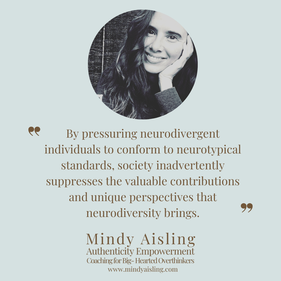 Masking requires neurodivergent individuals to constantly suppress their true selves, which can be mentally and emotionally draining. The effort to mimic neurotypical behavior and suppress natural tendencies can lead to a sense of disconnection from one's authentic identity. This ongoing struggle often results in increased anxiety, depression, and overall psychological distress. Furthermore, the perpetual demand to mask can create a pervasive feeling of inadequacy and can undermine an individual's self-esteem. The expectation to mask can also obscure the challenges faced by neurodivergent individuals. When someone successfully masks their differences, their struggles may go unnoticed, leading others to assume that they do not require accommodations or support. As a result, neurodivergent individuals may find it harder to receive the necessary understanding, resources, and accommodations that would otherwise help them thrive. By pressuring neurodivergent individuals to conform to neurotypical standards, society inadvertently suppresses the valuable contributions and unique perspectives that neurodiversity brings. Many of history's greatest minds and innovators were neurodivergent, and their unique ways of thinking and problem-solving have often led to groundbreaking discoveries and advancements. Embracing neurodiversity and allowing individuals to express their authentic selves benefits not only those individuals but society as a whole. Remember, neurodivergent individuals fit in great, have excellent communication, and experience ease in relationships with other ND's! It is not that they "don't fit in" - it is that they struggle to fit in with NT's, or, you could say that NT's struggle to fit in with ND's. That is equally as true. It is important to understand that there is simply different ways that the brain works, and one is not "right" and the other "wrong", they are simply different.
As an Authenticity Coach, my diagnosis helped me deepen into my authenticity with more clarity and permission. It allowed me to get to know and understand part of myself from a new perspective and with more knowledge and information. As I've educated myself on this topic, and personal done the work in my life, it has allowed me to help other individuals on the same path. Below, I'm going to share a few of the ways that my autism and masking has impacted my life. I also want to note that most people (yup, even family) were surprised or in disbelief about my diagnosis. The most interesting thing to me was that some people seemed to have a heavy resistance to accepting it. It almost felt like they didn't want to update their view of me or accept that I might have been struggling with this for my entire life. Some of the neurotypical in my life were almost defensive when I shared with them some of the ways that I had been masking. I heavily relied on my communication, compassion & self-advocacy skills to navigate this part of my journey. Here are 5 ways that my neurodiverse brain works differently then the neurotypical brain, how I've personally struggled with masking, and the tools I've used to deepen my authenticity, build more connected relationships, and increase my peace.
It is essential for neurotypical to recognize and respect the right of neurodivergent individuals to be themselves without the need for constant masking. Building a culture of acceptance involves educating ourselves about neurodiversity, challenging preconceived notions, and creating inclusive environments where individuals of all neurological profiles can thrive. By fostering understanding, empathy, and appreciation for neurodiversity, we can create a society that values the strengths and contributions of all its members.
The demand for neurodivergent individuals to mask their differences in everyday life imposes a heavy burden that can have detrimental effects on their mental health and overall well-being. It is crucial for neurotypical to acknowledge and respect the neurodivergent experience, allowing individuals to embrace their unique traits and contribute to society authentically. By promoting acceptance and celebrating neurodiversity, we can create a more inclusive world where everyone can flourish. It you relate to this article, and would like to discuss coaching in this area, please schedule a free session with me. Empowerment Principals
Empowerment Principal #1: Let go of JudgementThe first empowerment principle is letting go of the addiction to labeling things as right or wrong, good or bad. Consider this: problems and challenges are creations of a fear-based perspective on life. When we rise above our fear - what remains is opportunity. Empowerment Parable: The Man With The HorseA farmer and his son had a beloved stallion who helped the family earn a living. One day, the horse ran away and their neighbors exclaimed, “Your horse ran away, what terrible luck!” The farmer replied, “I don't know if it is a good thing or a bad thing, all I know is that yesterday I had a horse, and today I don't have a horse." A few days later, the horse returned home, leading a herd of wild mares back to the farm as well. The neighbors shouted out, “Your horse has returned, and brought several horses home with him. What great luck!” The farmer replied, “I don't know if it is a good thing or a bad thing, all I know is that yesterday I didn't have a horse, and today I have a herd of horses." Later that week, the farmer’s son was trying to break one of the mares and she threw him to the ground, breaking his leg. The villagers cried, “Your son broke his leg, what terrible luck!” The farmer replied, “I don't know if it is a good thing or a bad thing, all I know is that yesterday I my son had two healthy legs, and today he has one broken leg. A few weeks later, soldiers from the national army marched through town, recruiting all the able-bodied boys for the army. They did not take the farmer’s son, still recovering from his injury. Friends shouted, “Your boy is spared, what tremendous luck!” To which the farmer replied, “I don't know if it is a good thing or a bad thing....." Rather than telling yourself a story about something being absolutely good or absolutely bad, consider that you might not see the full picture yet. Empowerment Principal #2: The Answers Lie WithinThe second empowerment principle is understanding that the answers lie within. Every single one of us is greater and wiser than we appear to be. I'd estimate that nearly 85% of all human beings spend most of their time buffeted between victim-passivity and anger-conflict. Fear-based thinking makes us accustomed to focusing on the problems instead of the solutions. The solutions are always there, if we don't see them, then we just haven't paid attention to them yet. This is great news because it mans that you have all the answers that you need. Empowerment Principal #3: Self-Empowerment through ActionThe third empowerment principle is taking ownership of your life and embracing self-empowerment through action. Recognize that you have the power to shape your reality and make choices that align with your goals and values. Each moment describes who you are and gives you the opportunity to decide if that's who you want to be. Today's version of you is a result of everything you've experienced and chosen up to this moment. Yet today's version of you is a work in progress, it is not yet set in stone. The past doesn't determine your future. You can choose to remold yourself and increasingly become more of who you truly want to be. Remember, empowerment is a journey, and it requires attention and intention. By implementing these principles, you move towards unlocking your true potential, overcome obstacles with greater ease, and creating a life that is aligned with your unique authenticity. Empowerment CoachingEmpowerment coaching is more than gaining support to get from point A to point B. It is a transformational process where you become a more conscious leader of your life, making choices that are not based on fear, assumptions, interpretations or limiting beliefs. In depth coaching will assist you to find aspirations and potential that you never even knew existed within yourself. You will become someone who is not held back by circumstances and challenges that would normally throw just about anyone for a loop. Acquiring KnowledgeAcquiring knowledge is a multifaceted process that extends beyond intellectual understanding. It involves engaging with information at intellectual, emotional, and habitual levels, each offering a distinct dimension of comprehension and integration. Without recognition of the levels of knowing, we can block ourselves from further personal growth and development, accurate self assessment, and deeper connections. 3 Ways To Know: In the Mind (Intellectually)Intellectual knowledge refers to the cognitive understanding of facts, theories, concepts, or information. It involves grasping ideas, theories, and principles through reasoning, analysis, and logical thinking. Intellectual knowledge is acquired through education, reading, research, and studying, and is often rooted in objective facts and evidence. Example: I know that eating fast food is unhealthy and will cause me to gain weight. Action/Result: I continue you eat fast food because this knowledge is just an intellectual understanding, and I don't really "know" it yet. 3 Ways To Know: In the Heart (Emotionally)Emotional knowledge encompasses the experiential and empathetic understanding of information. It involves connecting with knowledge on a deeply emotional level, allowing us to grasp its impact and significance. Emotional knowledge is gained through personal experiences, empathy, and emotional intelligence. It involves recognizing and appreciating the emotional nuances and implications of the knowledge, enabling us to relate to others' experiences and perspectives. Example: I have a personal experience with health or weight issues. Action/Result: I struggle to stop myself from eating fast food because even though I "get" that is is bad for me, I still in the process of aligning my actions with this truth. 3 Ways To Know: In the Body (Habitually)Habitual knowledge refers to the practical application and embodiment of knowledge through repeated action and behavior. It involves integrating knowledge into our daily lives, routines, and habits. Habitual knowledge is developed through practice, repetition, and consistent application. It transforms knowledge from a theoretical concept into a practical skill or ingrained behavior. By embodying knowledge habitually, we can effectively translate intellectual understanding into meaningful action. Example: I have created habits and routines to support my health and weight. Action/Result: I don't eat fast food because I have a deep understanding of how bad it is for my health. Because I honor the love I have for myself, my body, and my life, I am no longer even tempted to eat things that aren't good for me.
Intellectual, emotional, and habitual knowledge work together synergistically to provide a more profound and transformative understanding of the world. By actively engaging with knowledge in all its dimensions, we embark on a journey of growth, empathy, and positive change.
Getting out of the hustle and taking back ownership of your life is completely possible. You're not crazy to dream about it. Like any change - it will require creativity, experimentation, tenancy and curiosity. It will require that you change YOU and YOUR LIFE. The blog is part of a series on Residual Income Options - outlining ideas and action steps that you can take out in the world to create a slower, more authentic life for yourself. While it is a wealth of knowledge and helpful information, it alone won't get you where you want to go. The thoughts, beliefs, habits, and routines you have now are what led you to where you are today. The only way to successfully make a big change in your life is to change yourself in addition to taking actions in the world. When you invest time, energy and money into both your inner and outer worlds with intention - you can do just about anything you want. If you're wondering how to get started on the inner stuff, you can follow me on social media, read more of my website, schedule a free session with me, or download my DIY Coaching Course, "The Stories We Tell Ourselves." How To Make Money With Your BlogIn today's digital age, blogging has become more than just a platform for personal expression. It has evolved into a powerful tool for earning income and building a successful online business. While starting a blog is relatively easy, turning it into a profitable venture requires strategic planning, dedication, and consistent effort. Creating A Blog NicheFirst, choose a profitable niche that aligns with your inner voice. Selecting the right niche for your blog is crucial. There are two things that will define your perfect niche: A subject that you are passionate about, and one that has a potential audience and monetization opportunities. Invest time and energy in both. Journal, spend time alone, brainstorm with friends, get slow and quiet enough to hear that voice of authentic wisdom inside of you. Then, conduct thorough market research to determine the demand for content in your chosen niche. Building Your BlogCreate a visually appealing and user-friendly blog that provides value to your audience. Invest in a professional design, optimize for search engines, and ensure your site loads quickly. Consistently publish high-quality, engaging content that keeps readers coming back for more. While you can certainly hire someone to build you a website, I highly recommend using a DIY Website Builders, this will save you money and allow you to be in full control of content and publishing. Display Advertising on Your BlogOne of the most common ways to monetize a blog is through display advertising. Join an advertising network, such as Google AdSense, and place ads strategically on your blog. Focus on optimizing ad placement for maximum visibility and click-through rates while maintaining a balance between user experience and ad revenue. Google Adsense allows you to run ads from the Google Display network on your website. In the beginning, you can monetize your blog with Google Adsense, but you won't make much money. Your earning potential is $0.1 - $0.5 per page view/mo. In the event that you reach 25,000 page views a month, you can (and should) drop Google Adsense in favor of an advertising network that manages your display ads directly on your website (also known as publisher networks), ensuring you are earning the most money. Typically these networks take between 20%-40% of the display ad revenue from your website. Affiliate Marketing on Your BlogAffiliate marketing is a powerful way to generate income by promoting products or services on your blog. Join affiliate programs relevant to your niche and incorporate affiliate links within your content. When readers make purchases through your links, you earn a commission. Be authentic and only recommend products you genuinely believe in to maintain trust with your audience, and alignment with yourself. Placing affiliate ads on your website is a legitimate way to make money. It is possible to earn money recommending products or services and getting paid every time someone signs up through your link. In comparison to ad campaigns where you get $1-$3 per click, affiliate commissions can earn you $5-$500) each time someone clicks on your link. The easiest, lowest hanging fruit is the Amazon affiliate program where you can get paid whenever you link to a product listing on Amazon if one of your readers buys the product. While Amazon's payouts aren't as high as promoting a specific product directly, they have an easy-to-use affiliate platform and you can promote pretty much anything on Amazon. In general, the more expensive the product you promote, the higher the commission you'll receive if someone decides to buy it through your link. When you're ready to take the next step, begin by making a list of products you believe in & already use that relate in some way to your niche and authentic self. This can include things you use around the house or in your garden, clothes you love, foods you eat, or tools and equipment related to your hobby. Next, create your "influencer" resume. While the word "influencer" often brings an image of a millionaire teenage gamer on YouTube, it really is the best word to you because you are, literally, making money influencing someone. So, let's own it. Even if you only have a couple hundred followers - you can still learn to present yourself in the best possible light to prospective collaborators. As you grow, your resume and clientele will grow. Don't wait - just the act of building this document will help you gain clarity on your who you are and where you're going. For tips on creating this document, read this blog. Also, I do offer sessions on specific tools (like this one) where we can meet just once or a few times to build your resume together. We'll zoom and screen-share and create your document together. Yup, you'll leave our session with a shiny new influencer resume. If you're interested, complete the Entreprenerd inquiry, and I'll get back to you with more information. After you have your resume, begin to reach out to companies that you're interested in working with. Not all companies have affiliate programs or sometimes they keep them hidden for a smaller group of bloggers. Some might have minimum traffic requirements, and if so, just make a note to contact them when your traffic gets bigger. Again, I offer support and coaching through this process if you're interested, just reach out to me. Sponsored Content for Your BlogAs your blog gains popularity, you can attract opportunities for sponsored posts and brand collaborations. Companies may approach you to write reviews, create sponsored content, or promote their products. Typically they will offer between $50 – $1,000 to publish one of their posts on your blog. Give intention to the partnerships, and make sure they align with your blog's values and resonate with your audience. The world of blogging is ever-evolving, and it's essential to stay updated with the latest trends, strategies, and technologies. Join blogging communities, attend conferences, read industry publications, and invest in your education. Be open to experimentation and adapt your approach based on what works best for your audience and niche.
|
AuthorMindy Amita AislingAuthenticity EmpowermentLife Coaching for Big-Hearted Overthinkers & Entreprenerds🐲Own Your Weird
🌎 Change Your World ⬇️ DIY Courses 👩🏻💻1:1 RemoteCoaching Fully Accredited ICF Certified Mindy Amita Aisling, is a professionally trained and board-certified leadership, authenticity, and entrepreneur coach.
Mindy exceeds all requirements set forth by the International Coaching Federation (ICF) for Master Coach certification. Mindy is also a licensed mediator, communications coach, and conflict resolution practicer. As a mediator, she has worked both in private practice and as a court appointment mediator at her local county courthouse. Through her innovative approach, she assists clients in examining their limiting beliefs, questioning their assumptions about how the world works, and releasing the notion that they are anything less than perfect. As a result, individuals who work with Mindy cultivate the ability to stand firm in their beliefs, live authentically and decisively, and discover an experience of life that is easy and graceful. In 2021, Mindy founded How to Be Human and Entreprenerd. These programs have enabled her to share her wisdom and knowledge with a broader audience in service of her vision of helping others live authentic lives This, in turn, has empowered more individuals to lead their most TRUE and COURAGEOUS lives. When she is not working, Mindy can be found playing outdoors in the beautiful Pacific Northwest, creating art, spending time with friends & family, or with her nose deep in a book. You can sign up for her newsletter here. Archives
June 2024
Categories
All
ICF Certified Life CoachAffordable Online Life Coaching |

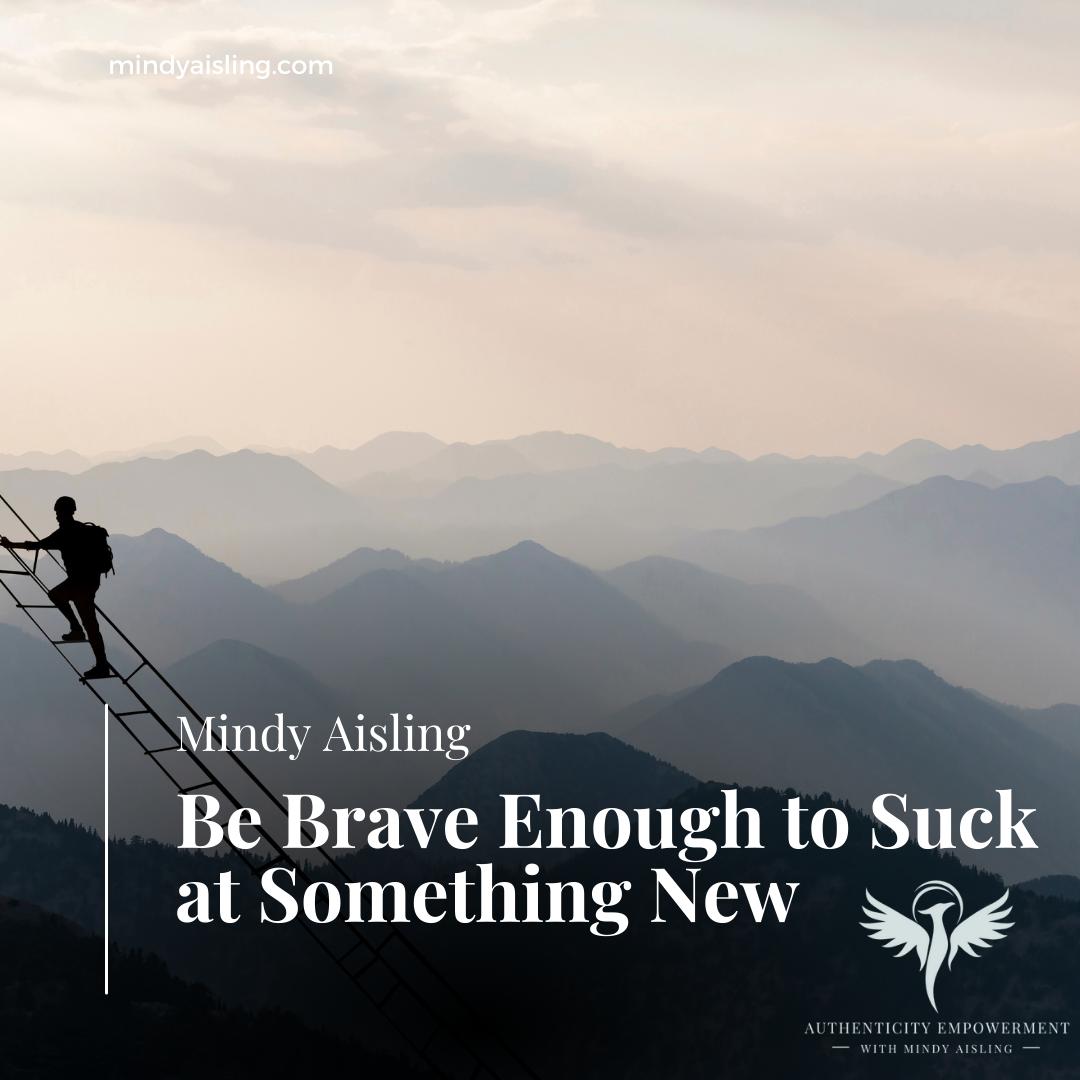
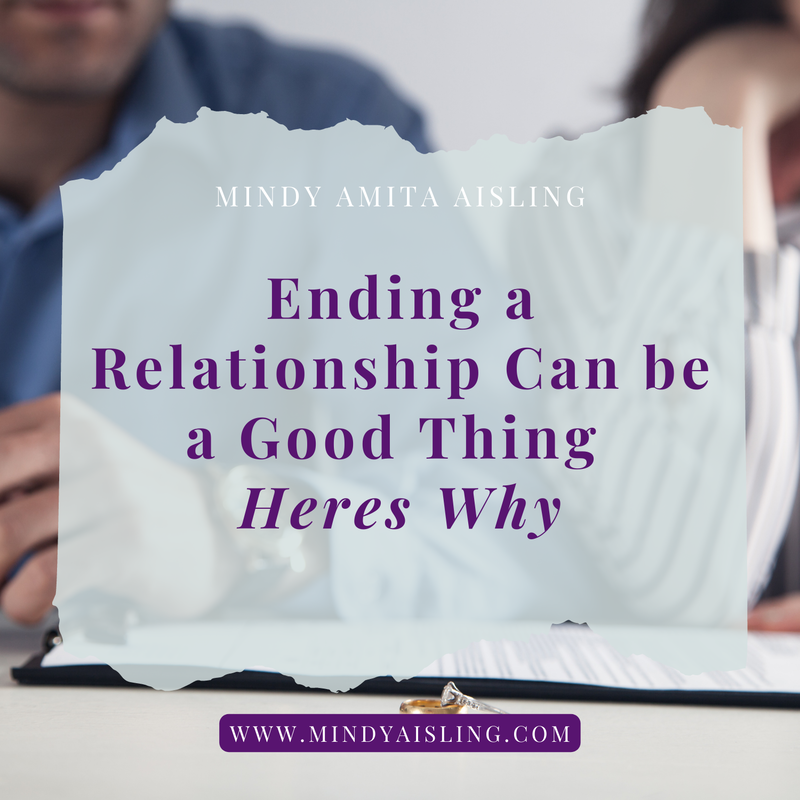

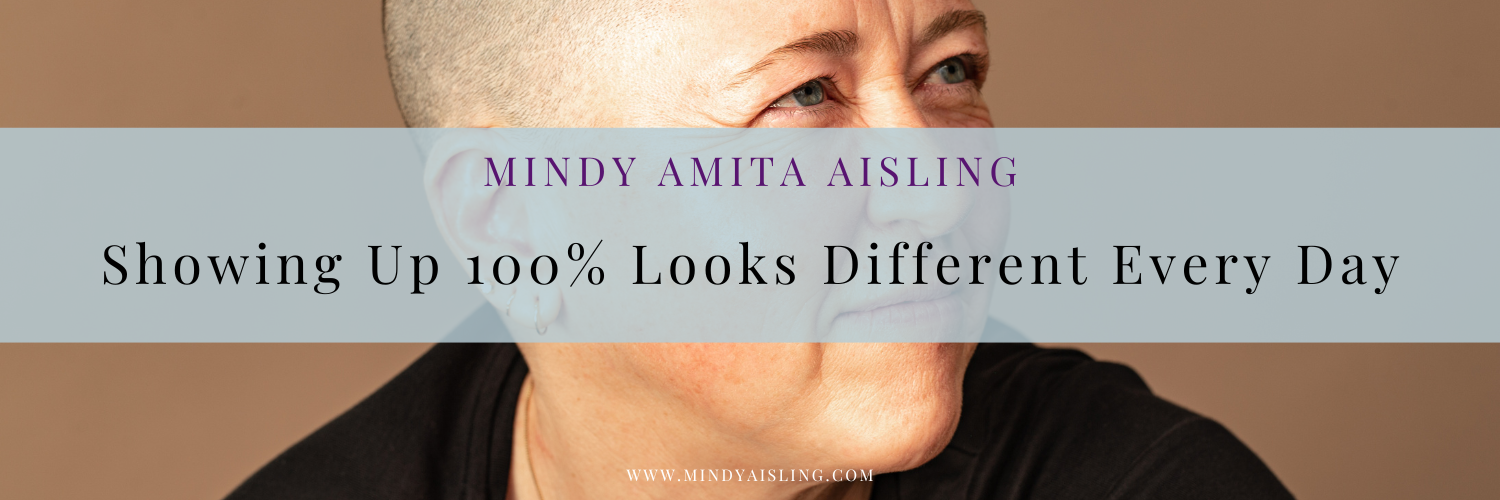



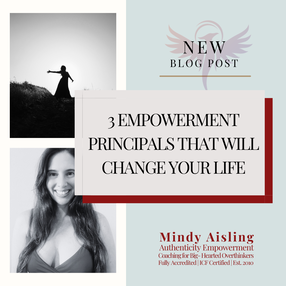


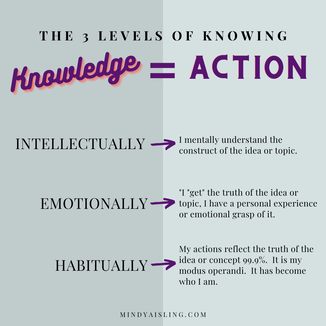

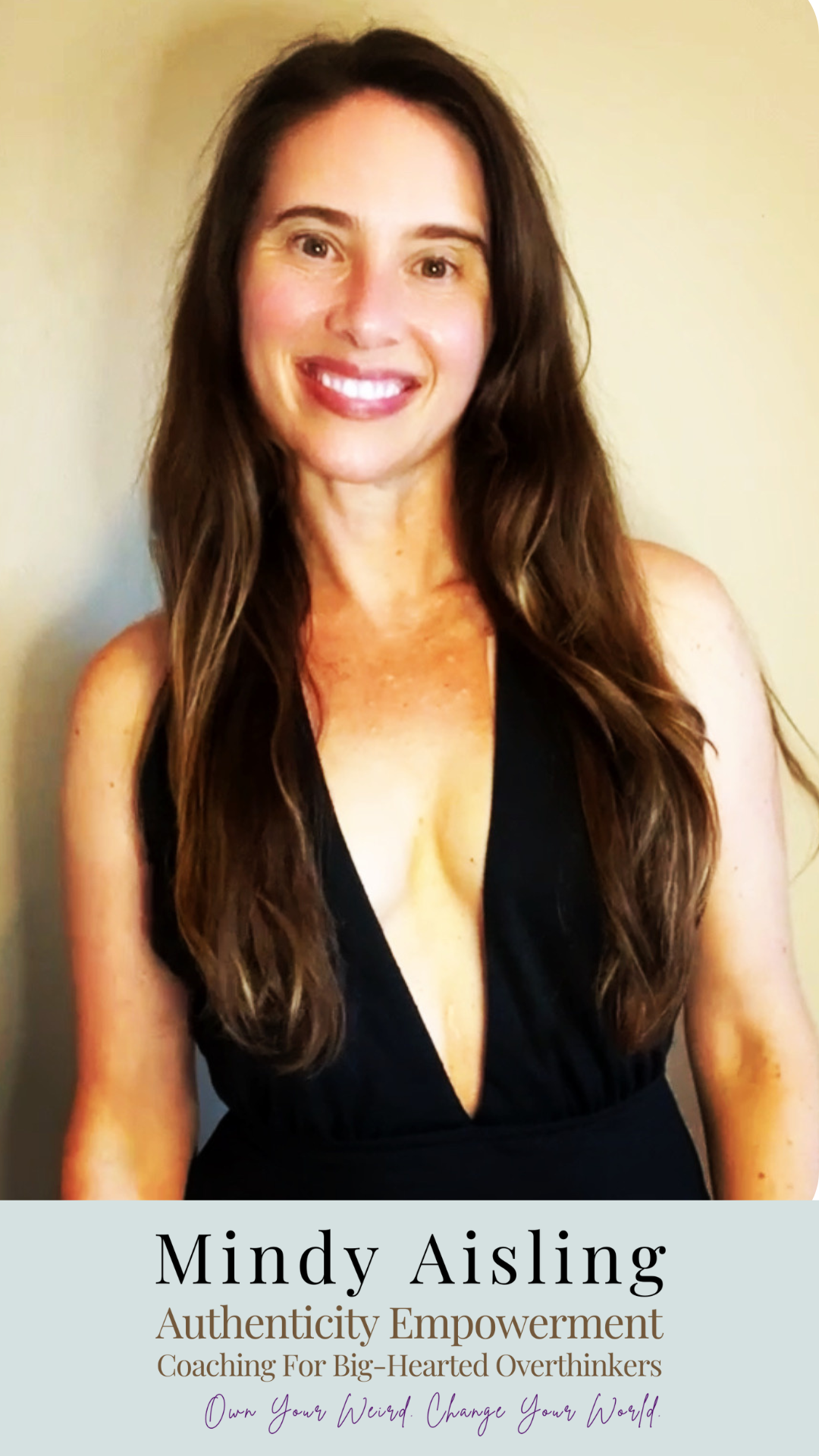
 RSS Feed
RSS Feed
